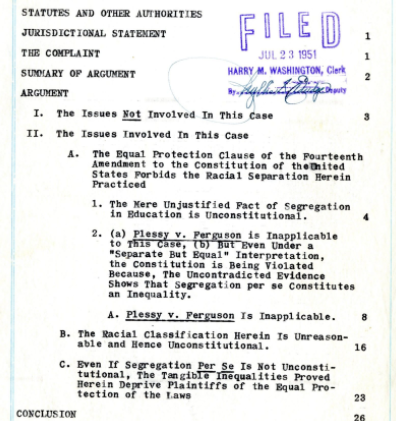
National Archives
The NAACP quickly appealed the cases to the Supreme Court, and they were merged. The various debates used in the cases contributed towards Supreme Court success.

National Archives
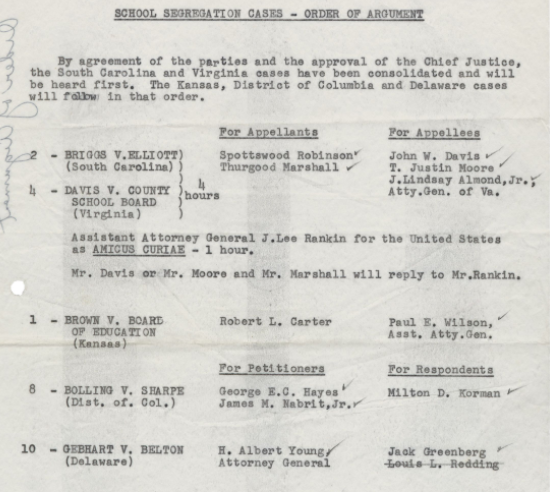
National Archives
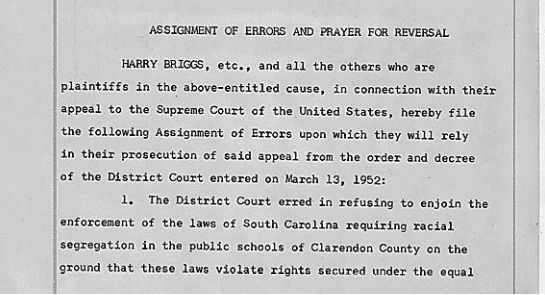
National Archives
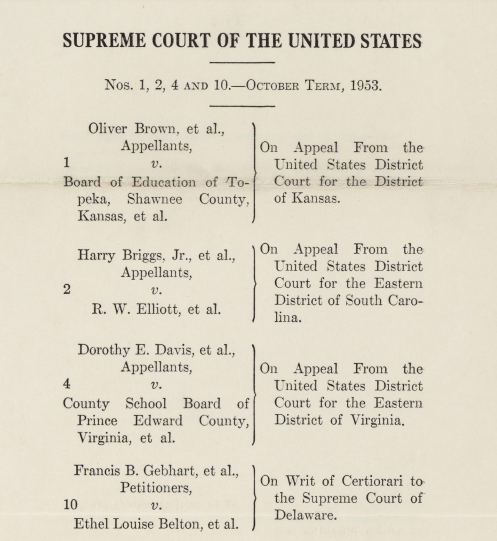
PBS Learning Media
The LDF toiled relentlessly to perfect their debate. They spent hours conferring with law and psychology experts to create the best strategy to present their arguments. To strike down Plessy, they had to debate flawlessly.
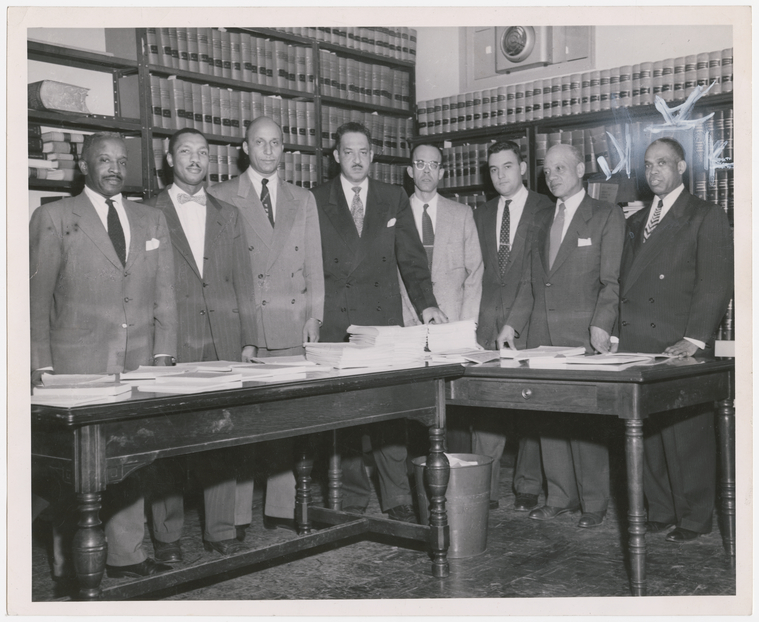
New Yorlk Public Library Digital Collections
Conference rooms in the LDF's offices were crammed, often with sixty or more people standing and shouting...Law books were strwen everywhere, and some people had to sit on the edges of tables because there weren't enough chairs. " -Harvey Fireside, Thurgood Marshall
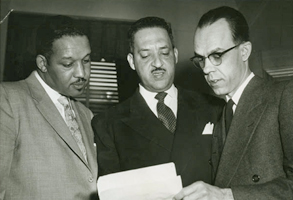
Library of Congress
The core of the LDF’s argument was the violation of the 14th amendment. Each case was argued separately. They utilized psychological data to prove the damaging effects of segregation on youth. Segregation could never fulfill the 14th amendment due to the unjust mental impact. Black students would always suffer from the mental damage, no matter how equalized the schools were. They used scientific evidence to debate segregation's constitutionality.
"The very purpose of the Thirteenth, Fourteenth, and Fifteenth Ammendments was to effectuate a complete break with governmental action based on the established uses, customs and traditions of the slave era, to revolutionize the legal relationship between Negroes and whites, to destroy the inferior status of the Negro and place him upon a place of complete equality with the white man." - Thurgood Marshall
"When these early attitudes are born and fashioned within a segregated educational framework, students of both the majority and minority groups are not only limited in a full and complete interchange of ideas and responses but confronted and influences by value judgements sanctioned by their society which establishes qualitative distinctions based of race." - Thurgood Marshall
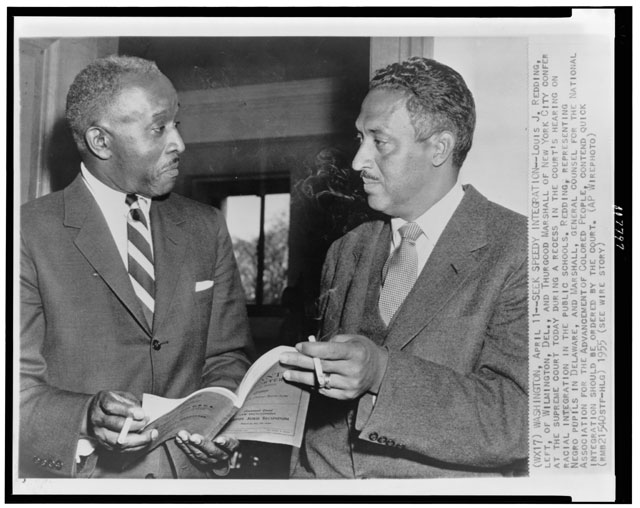
Library of Congress
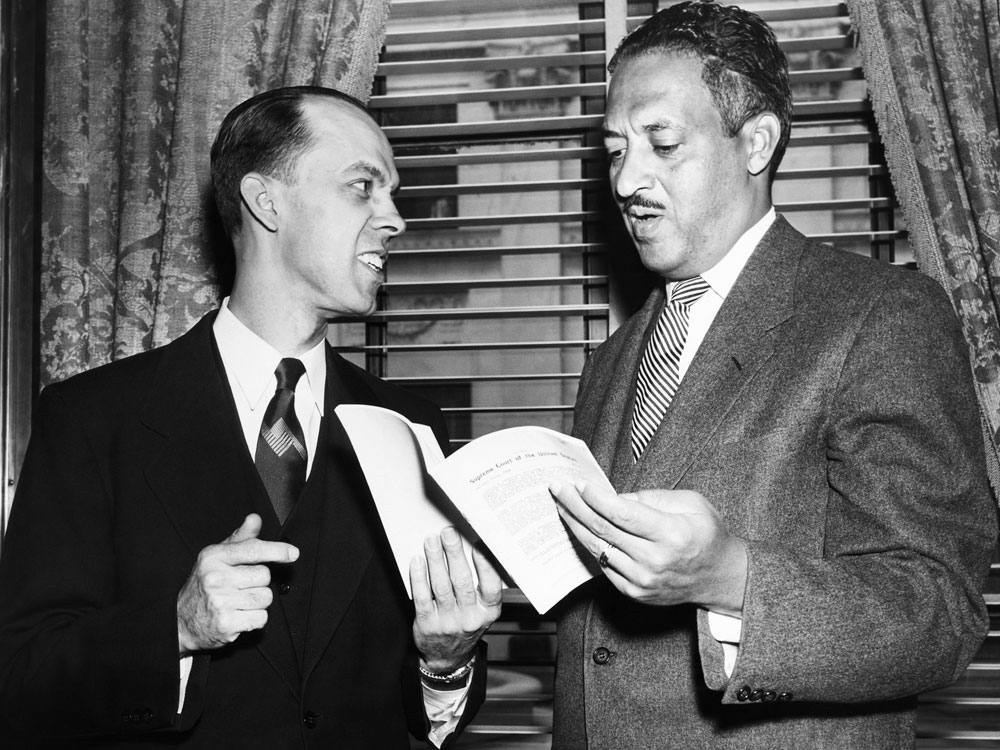
Library of Congress

Smithsonian Magazine
Judge Robert Carter, Washington University Repository
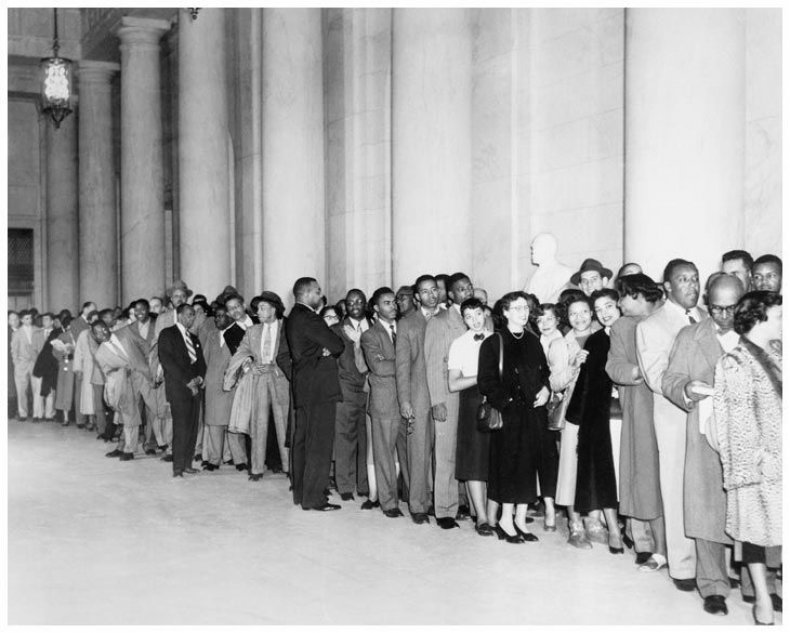
Library of Congress
"Education cannot be separated from the social environment in which a child lives. He cannot attend separate schools and learn the meaning of equality. Segregated education, particularly at the elementary level, where emotional aspects of learning are tied up with the learning process itself, must and do have a definite and [negative] effect upong the Negro child." -Thurgood Marshall
"Education cannot be separated from the social environment in which a child lives. He cannot attend separate schools and learn the meaning of equality. Segregated education, particularly at the elementary level, where emotional aspects of learning are tied up with the learning process itself, must and do have a definite and [negative] effect upong the Negro child." -Thurgood Marshall
We are saying that there is a denial of equal protection of the laws, the legal phraseology of the clause in the Fourteenth Amendment, and no just this point as to equal- in, and I say that because I think most of the cases in the past hase gone off on tie point of whether on if you have substantial equality is a type of provision that, we think, tends to get us into trouble So, pursuing that line, we produced expent withesses. who had subserved the school sitution, to show the full extent of the physical inequalities and then we produced expert witnesses. -Thurgood Marshall
The defense continued to cite Plessy and the “separate but equal” doctrine. They provided a difficult debate. The defense argued that education and segregation fell under states rights. It would be unconstitutional for the court to interfere. Lastly, they emphasized the merit of segregation. The defense relentlessly criticized the validity of scientific evidence. Some claimed that the schools were already equal.
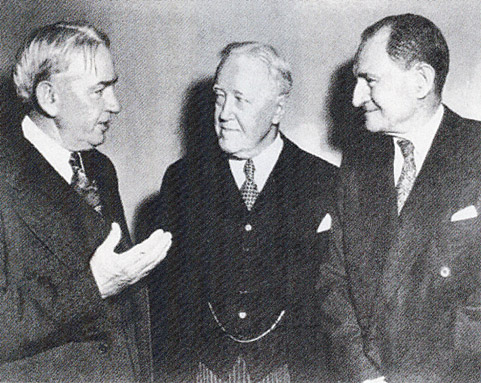
American History Edu
Is is not a fact that the very strength and fiber of our federal system, is local self government in those matters and for which local action is competent? Is it not, of all actvities of government, the one which most nearly approaches the hearts and minds of people, the question of education of their young? - John Davis
"The segregation of pupils in public schools on this basis of color is not a question of constitutional rights but of legislative policy." - John Davis
Interview with Paul E. Wilson, Washington Repository